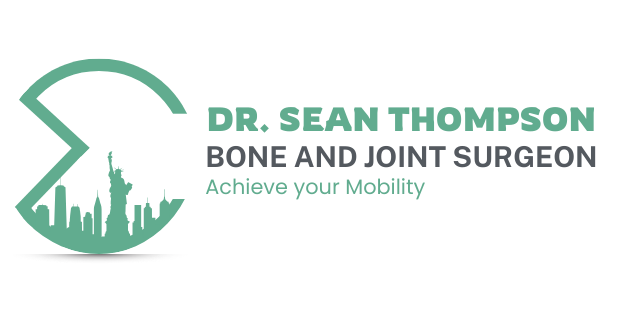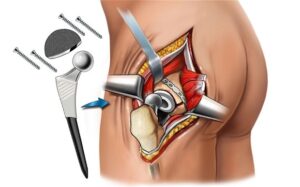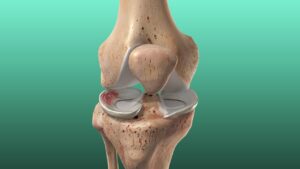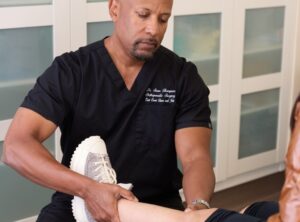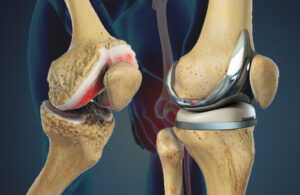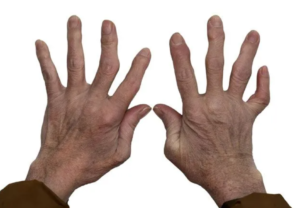Knee pain is a problem that almost anyone can suffer from today, and there are several reasons for that. Every day, we walk and use stairs, and many of us participate in sports. Due to daily activities, injuries, or the simple aging process, many individuals experience persistent pain in their knees along with decreased movement. It is unlike the past, where a single family physician would specialize in everything; now, different specialists are catering to knee issues, which makes it even more difficult to decide who the patient should visit.
Who should you see for knee pain?
This associate explores the most common types of knee doctors and helps you determine when it’s time to visit a knee orthopedic surgeon in Clifton or nearby areas in New Jersey.
Understanding Knee Pain: Causes and Symptoms
The knee is a hinge joint made up of bones, cartilage, ligaments, and tendons. These structures must work in harmony to allow smooth, pain-free movement. When any part of the system is injured or worn down, pain, stiffness, or insecurity can occur.
Common causes of knee pain include:
- Ligament injuries (ACL, MCL, PCL tears)
- Meniscus tears
- Osteoarthritis
- Patellar tracking disorders
- Tendonitis or bursitis
- Overuse and repetitive stress injuries
- Traumatic injuries from accidents or falls
Symptoms like swelling, difficulty walking, popping sounds, or limited movement should not be ignored. Early opinion and treatment frequently lead to better recovery from issues.
Types of Doctors Who Treat Knee Pain
Several healthcare providers are involved in the treatment of knee issues. Each plays a unique role depending on the severity and cause of the condition.
1. Primary Care Physician (PCP)
Your primary care provider is often the first point of contact. They can evaluate basic symptoms, prescribe pain relief, and refer you to a specialist.
2. Physical Therapist
Physical therapists use exercise and manual therapy techniques to restore joint function. They’re pivotal in helping cases recover after surgery or manage chronic knee problems without invasive intervention.
3. Sports Medicine Specialist
A sports medicine doctor specializes in treating injuries related to sports and physical activity. These physicians focus on nonsurgical methods such as bracing, injections, or rehabilitation.
4. Rheumatologist
If your knee pain is caused by autoimmune diseases such as rheumatoid arthritis or lupus, a rheumatologist is the specialist you need. They use medication and change lifestyle recommendations to manage joint inflammation and damage.
5. Orthopedic Surgeon
An orthopedic surgeon is a medical doctor trained to diagnose and treat musculoskeletal issues, including complex knee problems. These specialists are skilled in both surgical and non-surgical treatments.
They handle a range of conditions, including ACL tears, meniscal injuries, cartilage degeneration, and advanced arthritis. If you’re located in New Jersey, consider consulting Dr. Thompson, a leading name in orthopedic surgery.
When Should You See a Knee Orthopedic Surgeon in Clifton?
While physical therapy and medication may relieve mild symptoms, some knee conditions require expert intervention. You should consult a knee orthopedic surgeon in Clifton if:
- Your knee pain lasts longer than 2–3 weeks
- You have trouble standing, walking, or climbing stairs
- The joint feels unstable or locks up
- You’ve experienced an injury and suspect a ligament or meniscus tear
- Your pain persists despite conservative care
- Prompt attention from a qualified surgeon can prevent further damage and support long-term recovery.
Meet Dr. Thompson – A Trusted Knee Specialist
Dr. Thompson is a board-certified orthopedic expert famed for his work in common preservation and surgical reconstruction. He provides patient-centered care using minimally invasive ways, with a focus on reducing pain and accelerating recovery. Cases trust his moxie and substantiated approach, especially those seeking a knee orthopedic surgeon in Clifton with a strong character for issues.
Whether it’s an ACL form, meniscus surgery, or a full joint replacement, Dr. Thompson develops treatment plans acclimatized to each case’s life, pretensions, and health requirements.
Surgical Treatments for Knee Conditions
Contrary to what some believe, not all orthopedic care leads to surgery. Most orthopedic surgeons in Clifton offices begin with conservative methods such as:
- Physical therapy – To build strength and improve joint mechanics
- Steroid or hyaluronic acid injections – For pain and inflammation relief
- Bracing and orthotics – To support joint alignment
- Activity modifications – To reduce strain on the knee
- PRP (Platelet-Rich Plasma) therapy – To promote tissue healing
These methods can be effective for mild to moderate knee pain and may delay the need for surgery.
Surgical Solutions for Complex Knee Problems
If conservative care fails, surgery may be the most effective option. A knee orthopedic surgeon in Clifton will typically recommend surgical intervention for:
1. Arthroscopic Knee Surgery
A minimally invasive approach using small incisions and a camera to repair meniscal tears, remove loose cartilage, or treat early arthritis.
2. Ligament Reconstruction
This includes ACL or PCL repair, often necessary after high-impact sports injuries.
3. Partial or Total Knee Replacement
Recommended for patients with advanced osteoarthritis or joint damage that severely impacts daily life. New techniques ensure precision, quicker recovery, and long-lasting results.
How to Choose the Right Knee Doctor
When you are looking for a knee specialist, consider the following:
- Training and Board Certification – Ensure your provider is a board-certified orthopedic surgeon with experience in knee procedures.
- Patient Reviews – Research feedback and testimonials from former patients.
- Technology Used – Look for practices that use minimally invasive techniques and digital imaging.
- Location and Accessibility – Having care close to home—such as with a trusted knee orthopedic surgeon in Clifton—can ease stress during treatment and recovery.
- Approach to Care – The best doctors listen, explain your options clearly, and include you in treatment decisions.
Benefits of Seeing a Knee Orthopedic Surgeon in Clifton
Residents in Clifton and surrounding areas benefit from:
- Personalized treatment without traveling far
- Continuity of care from consultation to post-op rehab
- Access to advanced diagnostic tools and surgical methods
- Community-focused practices like Dr. Thompson’s, where you’re more than just a patient, you’re a partner in your care
Choosing an experienced knee orthopedic surgeon in Clifton means getting trusted care fit for your unique situation.
Final Thoughts:
Whether you are facing a current sports injury, long-term arthritis, or unusual joint pain, finding the right knee doctor is a critical step in your recovery time. From physical therapists and rheumatologists to expert surgeons like Dr. Thompson, each specialist plays a part.
Still, if your condition involves structural damage, ongoing pain, or functional limitations, do not wait to reach out to a good knee orthopedic surgeon in Clifton and take the first step toward a stronger, pain-free future.
